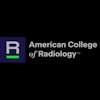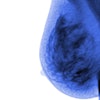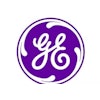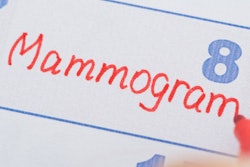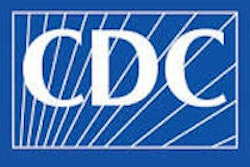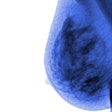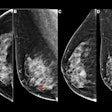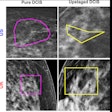Sunday, November 27 | 11:45 a.m.-11:55 a.m. | SSA01-07 | Arie Crown Theater
Researchers from Yale University have found that digital breast tomosynthesis (DBT) is an effective breast cancer screening tool for women in all age groups -- including those younger than 50, who may be susceptible to a higher rate of false positives.Mammography screening has come under fire for what some call its "harms": high recall rates and false positives, particularly in younger women. But DBT has lower recall rates and higher cancer detection rates than digital mammography, and these benefits appear to apply even in women ages 40 to 49, who often experience more false positives, according to a team led by Dr. Liane Philpotts.
Philpotts and colleagues investigated the performance of screening DBT by patient age, as well as baseline versus incidence screening. The study included 46,140 DBT screening exams acquired over a four-year span at Yale's main hospital and two satellite offices. The researchers categorized women into groups based on five-year age intervals, starting at 40 and continuing through 80; they then identified true-positive, false-positive, true-negative, and false-negative cases, and calculated overall sensitivity, specificity, and accuracy.
The researchers found the following:
- DBT's sensitivity was higher in the 40-to-44 age group (86.4%) than in the 45-to-49 age group (82.8%).
- Overall accuracy for baseline exams decreased with age, with the best accuracy found in the 40-to-44 group (80%) and the lowest found in the 70-to-74 group (65%).
- Specificity and accuracy increased as women aged, ranging from 88.7% in the 40-to-44 group to 96% in the oldest groups.
- Subsequent screening was more accurate than baseline exams in all age groups except those older than 80.
What did Philpotts and colleagues conclude from the data?
"Screening with DBT performs at a high level and with similar accuracy between age groups, such that younger women should not be deterred from undergoing screening," they wrote.


